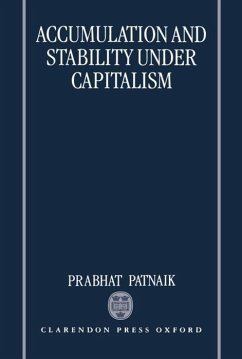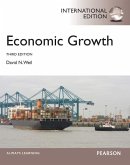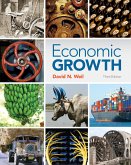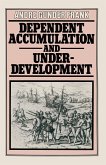The purpose of this book is to provide an altogether different view of the functioning and resilience of the capitalist system. Its argument is that the existence of a periphery of less developed countries provides a buffer that allows relatively crisis-free and non-inflationary growth in the capitalist core. The analysis unifies two fields that are normally separate: models of growth and stabilization policy in advanced economies and the economics of open, developing economies. Consequently, Patnaik embraces both a thorough analysis of modern fiscal, monetary, and inflation policy in advanced capitalist economies and the constraints that systematically hinder development in less developed countries. His model's great strength is that the interconnections between these two spheres are firmly established and are, indeed, shown as fundamental to our understanding of either 'the North' or 'the South'. Accumulation and Stability under Capitalism uses macroeconomic principles to solve problems currently addressed with microeconomic tools, establishing macroeconomics as a framework for analysing phenomena as wide-ranging as migration, imperialist systems, technological change, and labour markets. In the tradition of Keynes, Harrod and Domar, Marx, Luxemburg, and Kalecki, it offers an alternative path to the choice-theoretic models that have appeared to be the only modern analytical path.
Hinweis: Dieser Artikel kann nur an eine deutsche Lieferadresse ausgeliefert werden.
Hinweis: Dieser Artikel kann nur an eine deutsche Lieferadresse ausgeliefert werden.








